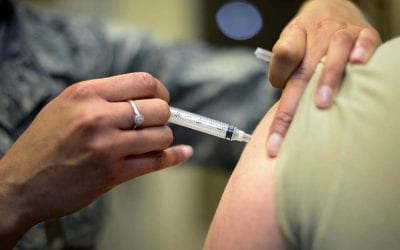Last week, at Moscow’s busiest airport, Domodedovo, a suicide bomber killed 35, and wounded over 100 more in the airport’s arrivals hall, a far easier target to enter than the heavily secured departures area.
When we examine how security is deployed at US airports, like most airports world-wide we see huge expenditures for security of the departures area, and to prevent explosives and weapons from being brought aboard scheduled commercial aircraft, by passengers, and shipments carried on the aircraft.
Like the Moscow airport, there’s little security once you leave areas of the airport secured for departures, such as baggage claim. I’m wondering how will TSA (Transportation Security Administration) react to the Moscow bombing at US airports?
I think I first noticed the true lack of comprehensive security by TSA at airports, when I read accounts in 2003, of three fishermen who washed up on shore at JFK International Airport in New York. They wandered the runways unimpeded at JFK for more than an hour. No one noticed them or questioned them, until they found a police officer and asked him for help.
Later that year, there was man who hid inside a cargo container and shipped himself by air from New York to Dallas.
More recently, there was the stowaway on Delta Flight 59 from New York to Tokyo’s Narita International Airport who had climbed into the plane’s landing gear for the trip.
Just last October, there was an incident involving a fake baggage handler at Philadelphia International Airport who has never been apprehended. He was seen milling around US Airways Flight 1070, and as a result, that flight had to be delayed for hours so a comprehensive explosives search could be completed. It took TSA more than an hour to react to the report of the fake baggage handler. By then, the plane was full of passengers and had to be evacuated.
To date, TSA seems to be an organization which merely reacts to events, instead of one which does proactive comprehensive planning, and so is seemingly always behind the terrorists they wish to keep at bay.
When British authorities reported foiling a plot to destroy US bound airplanes using liquid explosives, TSA banned passengers from bringing all liquids and gels into the passenger cabin, but eventually relented to passenger outrage, allowing small quantities of liquids, and have continued to water down their rules with more and more exceptions, to an already useless regulation.
After Richard Reid, the “Shoe Bomber” tried to blow up a plane, TSA started to require passengers to remove their shoes at airport security so they could be x-rayed.
After “Panty Bomber” Umar Farouk Abdulmutallab’s unsuccessful attempt to blow up a plane over the US, TSA decided they needed to “full body scan” passengers with scanners incapable of revealing such bombs as Abdulmutallab tried to use.
Some security experts believe the Moscow suicide bomber terrorist attack couldn’t have happened at Israel’s Ben Gurion Airport in Tel Aviv. They point out the multiple layers of security at the airport which are part of the Israeli comprehensive airport security plan.
Everyone entering the Ben Gurion International Airport grounds, to go to the terminal, are greeted at a roadside check before getting in. Every driver is stopped and asked, “How are you? Where are you coming from?” They are looking at your behavior as you are answering their questions, and listening to how you answer them.
Armed guards outside the terminal observe passengers as they move toward the doors, then at the airport’s half-dozen entrances and exits, another layer of security personnel is watching and observing. At this point, even before you’ve been able to enter the terminal, some are taken aside for more screening.
I’m not suggesting that every US airport adopt these procedures, but right now, other than a few police outside baggage claim, primarily there to stop people from parking or waiting for friends and relatives for too long, to exit baggage claim to be taken home, there is little or no security there.
Soon after the Moscow bombing last week, Esquire Magazine interviewed security expert Bruce Schneier about how he thought TSA should react to the bombing.
Mr. Schneier cautioned against over-reaction saying, “It’ll cost you money. It’s money that could be better spent making you safer. You waste money, you waste civil liberties, time, freedoms.”
Mr. Schneier said TSA needs to focus on “investigation, intelligence, and emergency response.” He later emailed Esquire to add, “The bomb could just as easily have been in any other crowded area of the city. There’s simply no way to secure them all.”
It would seem that TSA needs to react to the Moscow airport bombing by focusing their efforts on intelligence and intelligent response, via a comprehensive security plan, instead of merely reacting with a “knee jerk” effort to last week’s crisis, like all the crises before.
After many years working in corporate America as a chemical engineer, executive and eventually CFO of a multinational manufacturer, Ned founded a tech consulting company and later restarted NSL Photography, his photography business. Before entering the corporate world, Ned worked as a Public Health Engineer for the Philadelphia Department of Public Health. As a well known corporate, travel and wildlife photographer, Ned travels the world writing about travel and photography, as well as running photography workshops, seminars and photowalks. Visit Ned’s Photography Blog and Galleries.


